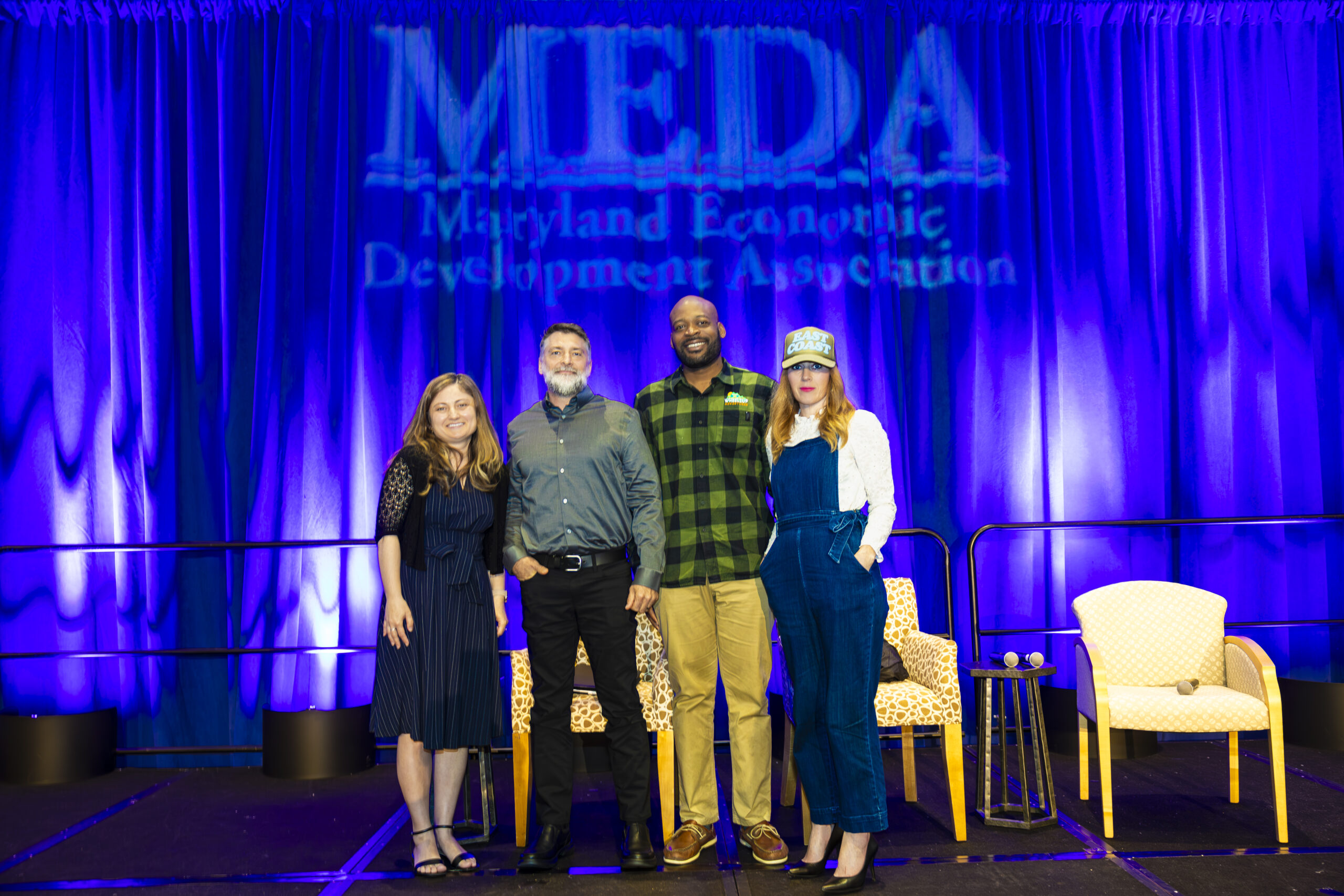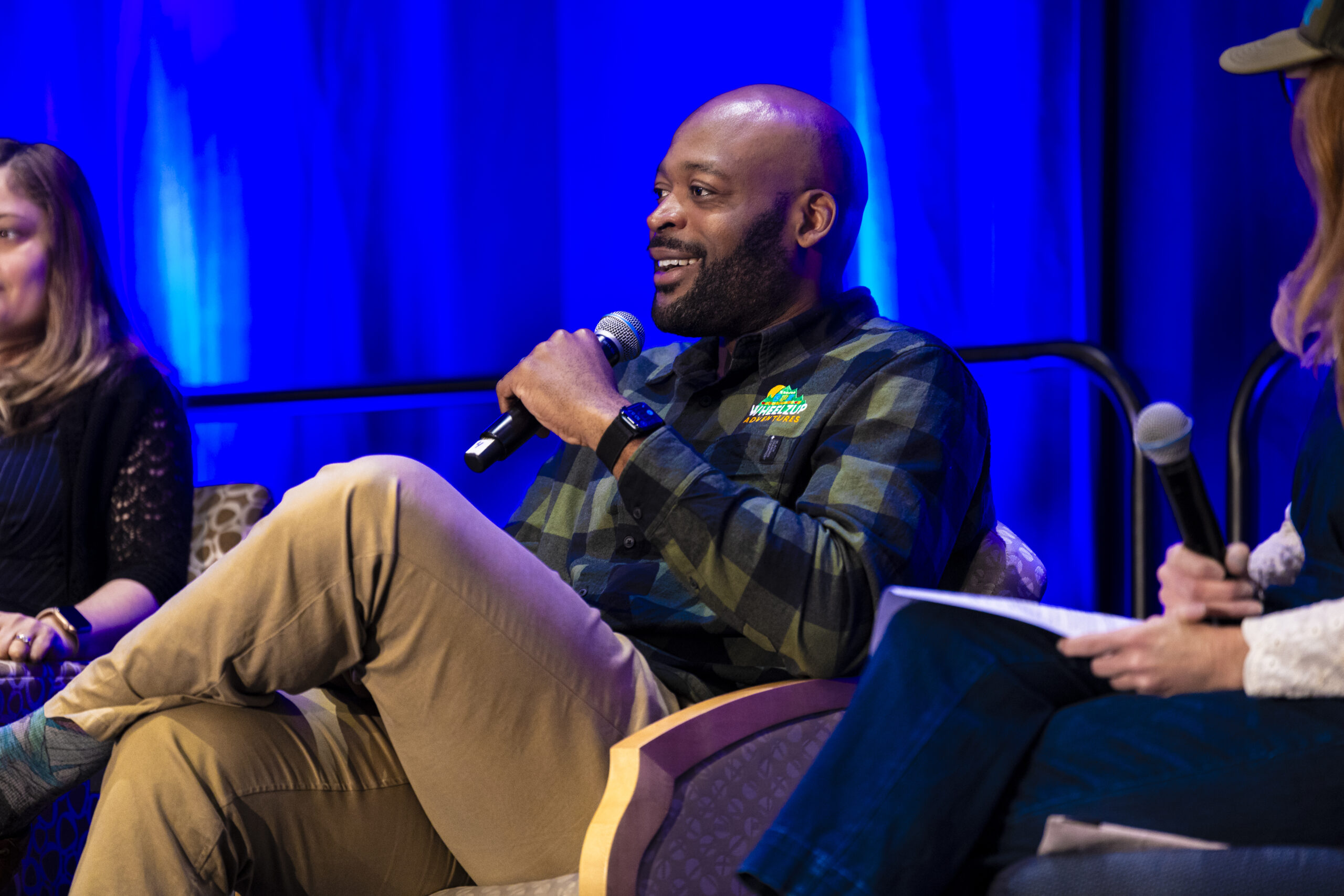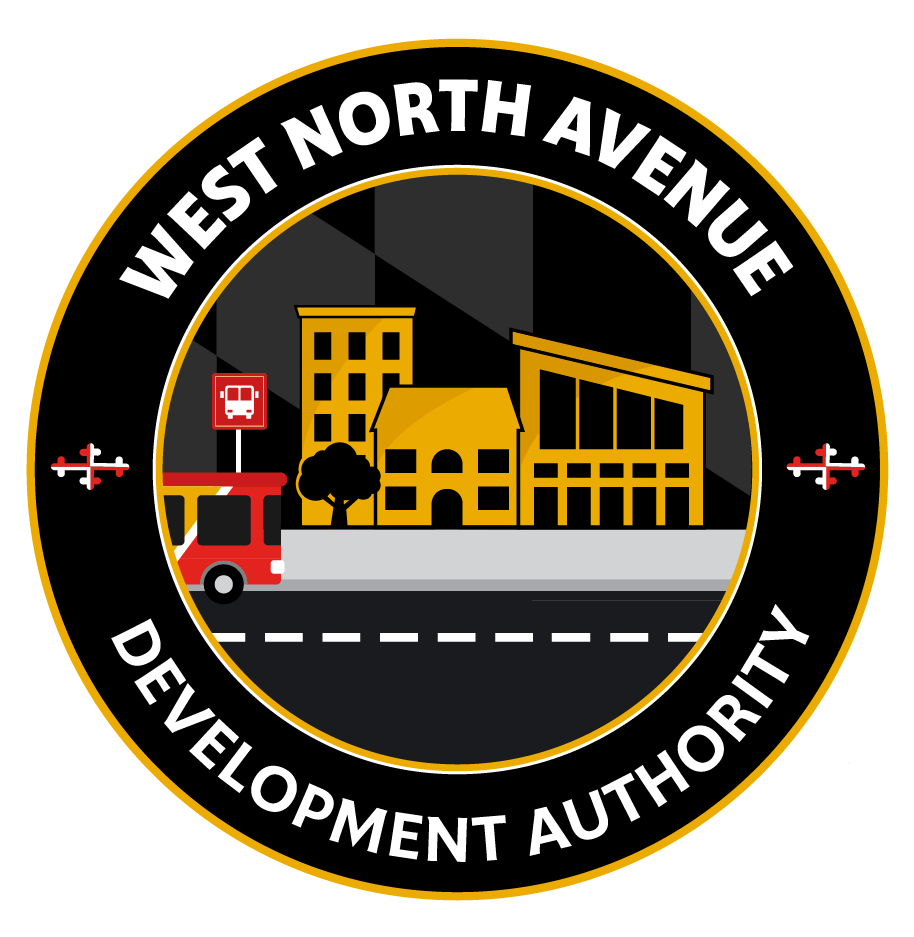Guest Blog: Panel: Building Mountain Maryland’s Outdoor Recreation Economy

From the Appalachian Mountains to the Atlantic Ocean, Maryland’s diverse natural assets and seasons create a unique destination with positive economic implications. Natural amenities might not always get the credit they deserve, but Maryland’s outdoor recreational opportunities present untapped economic development potential – with the mountains of Western Maryland as a highly sought after destination for adventure sports and various outdoor activities. The Region alone is home to 170,00 acres across 12 state parks and 3 state forests, with approximately 40 million people within 250 miles.
Moderated by Jennifer Walsh, Executive Director of The Greater Cumberland Committee (TGCC), the MEDA 2024 Annual Conference “Building Mountain Maryland’s Outdoor Recreation Economy” panel discussed Western Maryland’s advantages and opportunities within the realm of outdoor recreation. Panel participants engaged in dialogue from both the academic and entrepreneurial perspective.
Two Western Maryland academic institutions are already leveraging Maryland’s mountains for the purposes of workforce and economic development, while collaborating with local businesses and industry stakeholders to make the region a place to live, work and thrive.
Andrew Hershey, representing Garrett College’s Outdoor Leadership & Adventure Education Center for Adventure & Outdoor Studies, illustrated how workforce development programming around the region’s recreational activities has multifaceted benefits. Graduates of Garrett College’s program have found opportunities working in commercial, government and nonprofit outdoor programs throughout the region. Opportunities have also been developed to complement successful recreational industries, such as a bicycle mechanic program.
Natalia Buta Lowe, representing Frostburg State University’s Center for Advancement of Natural and Outdoor Experiences (CANOE), expanded beyond educational development and expressed the importance of offering students new experiences and opportunities in the recreational space. CANOE is a recently established center for advancing outdoor and natural experiences for students, faculty, staff, and the surrounding community. The center facilitates access to outdoor equipment, resources, quality outdoor recreation activities, field experiences, internships, and student employment in the outdoor industry.

Mandela Echefu, Co-founder and Chief Adventure Officer of Wheelzup Adventures in Cumberland, shared an entrepreneurial point-of-view. From the perspective of a business owner in the outdoor recreation industry, investment is still needed to grow the economic impact of our State’s natural assets. Like investments made in redevelopment projects, there is a need for Maryland to “invest in the infrastructure of the outdoors.” Investing in access to outdoor recreation could include water access, established trails, and other assets to make adventures equitable and accessible to all. With many of the natural amenities for outdoor recreation existing on public land, private businesses operating in these industries are often unable to make improvements to the landscape. However, they can bring jobs and opportunities by leveraging and building on the established infrastructure.
The mountains of Maryland do not only present breathtaking views and fresh air, but they are a recreational gem that deserves as much investment and leveraging as other economic development assets.
Written by Martin Proulx, State Value-Added Agricultural Specialist, Maryland Department of Agriculture, and MEDA Young Leader and Lofton Scholar



